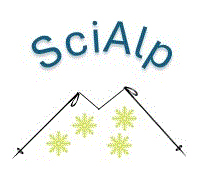Studying the economic and environmental sustainability of micro-ski resorts
PROJECT TITLE
SciAlp
NAME OF ORGANISATION
University of Torino, Department of Management “Valter Cantino”
Snapshot
The project “SciAlp – Economic and environmental sustainability of micro-ski resorts in time of climate change” focused in particular on micro-ski resorts at medium and low altitudes to investigate possible transformative strategies to other mountain tourism/outdoor sport purposes, with the aim to increase local communities’ resilience to climate change. Its final aim intended to discuss the potential reconversion of the micro-ski resorts to alternative tourism scenarios.
View of MPA Assessor
Largely an academic and consulting project it seems to be the first stage of a longer project to consider future alternatives to downhill skiing in small lower altitude ski fields. SciAlp is an interesting project with potentially useful lessons to be transferred across many similar smaller low altitude ski field communities in Europe.
Project Objectives and Vision
At an international level there is an important debate on the implications that climate change has on tourism, with particular reference to winter tourism and the ski sector. There are many scientific studies that have considered ski areas in every part of the world. A specific line of research has focused on analysing the possible strategies that ski resorts have adopted to deal with climate change and the consequent lack of natural snow, which is leading to a contraction of the usable ski season.
Among the various “adaptive strategies”, the production of artificial snow or “snowmaking” stands out for its importance. Snowmaking, however, is raising concerns due to both the environmental implications and associated economic costs. Moreover, recent research has also shown how the positive effects from the production of technical snow are limited to stations operating at high altitudes, further stimulating the debate on the possibility of stations at medium or low altitudes to guarantee their operations in the years to come, even with the production of technical snow. Nowadays there is a general consensus that low altitude ski resorts (around 1,500-1,700m) will be hit more quickly and more intensely by global warming. The SciAlp project thus investigated possible transformative strategies to other mountain tourism/outdoor sport purposes, with the aim to increase local communities’ resilience to climate change.
The now completed project started in October 2022 and ended in December 2024. The research involved two case studies, namely two micro-ski resorts in the Metropolitan City of Turin, Italy: Piamprato Soana, 1,550m, (Municipality of Valprato Soana) in Soana Valley and the Pakinò 1,439 m, Municipality of Balme, Val d’Ala di Lanzo.
The general aim of the project has been the discussion of strategies in order to convert, if necessary, low-altitude micro-ski resorts to other mountain tourism-sports purposes, analyzing the economic and environmental trade-off between keeping the resorts in operation and their transformation, and increasing local community resilience to climate change.
In the areas of the investigation, which represent two internal mountain areas with socio-economic marginality, the winter ski lifts, although limited in size if compared to the large Alpine resorts, are undoubtedly important for the local economy, allowing an integration of the income of economic operators during the winter period.
The project consisted of three macro actions:
- Context analysis.
- Micro-ski resorts management analysis.
- Reconversion strategies.
The results have been in the form of technical results – a context analysis, a report on artificial snow, one on economic considerations and a final one on reconversion strategies unique to the specific resort. These have been shared with the municipalities of Valprato Soana and Balme.
The project, therefore, presented itself as a useful tool for policy makers at local and regional level as it provides preliminary indications for the purpose of effectively and efficiently allocating the economic resources dedicated to the development of the areas.
UIAA Mountain Protection Award Nominees



